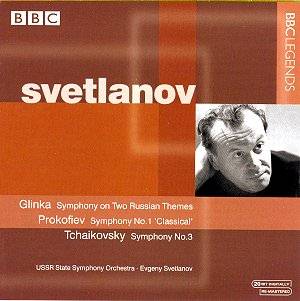|
| This week's Tuesday Blog features no. 286 of the ongoing ITYWLTMT series of audio montages, which can be found in our archives at https://archive.org/details/pcast286 |
=====================================================================
This is the fifth Tuesday of July and as is the custom here on the Tuesday Blog, I will be sharing my latest home-made montage (number 286 in my continuing series). Also, this week I am launching a mini thematic arc that I will call The Beaten Path, where my shares revisit composers and themes I've already looked at in the preceding year.
We've done quite a bit of Stravinsky this year - for those of you who follow Project 366 on my ITYWLTMT blog, you can already imagine I am preparing a Stravinsky chapter in that series. Today, a pair of works featuring Swiss conductor Ernest Ansermet.
Ernest Ansermet introduced Stravinsky's three early "big" ballets to the U.S. on the 1916 tour by Diaghilev's Ballets Russes. With his passion for precision, he became, over time, one of the composer's most trusted interpreters, giving the premières of the Capriccio for piano and orchestra (1929, with Stravinsky at the keyboard). This artistic relationship would founder on the composer's late-career embrace of atonality, a system which Ansermet, trained as a mathematician, would reject on scientific as well as aesthetic grounds.
The Allegro capriccioso movement that would become the finale was begun first, in Nice on Christmas Day 1928, and provided the musical material from which the other movements grew. It was followed by the second movement, completed at Echarvines on 13 September 1929, and then by the opening Presto. The premiere took place in the Salle Pleyel, Paris, on 6 December 1929, with the Orchestre Symphonique de Paris conducted by Ernest Ansermet (Stravinsky designed the Capriccio to be a virtuosic vehicle which would allow him to earn a living from playing the piano part). The next year, Stravinsky made a commercial recording of the work as soloist, with the Straram Orchestra, conducted by Ernest Ansermet This is the version featured today.
Oedipus rex was written towards the beginning of Stravinsky's neoclassical period, and is considered one of the finest works from this phase of the composer's career. He had considered setting the work in Ancient Greek, but decided ultimately on Latin: in his words "a medium not dead but turned to stone."
The libretto, based on Sophocles's tragedy, was written by Jean Cocteau in French and then translated by Abbé Jean Daniélou into Latin; the narration, however, is performed in the language of the audience. Today, the narration is in French, as the performance by Ansermet is from a broadcast recording made by French National Radio.
I think you will love this music too.




:format(jpeg):mode_rgb():quality(40)/discogs-images/R-2096497-1263775599.jpeg.jpg)

:format(jpeg):mode_rgb():quality(90)/discogs-images/R-9119674-1475110773-7894.jpeg.jpg)
